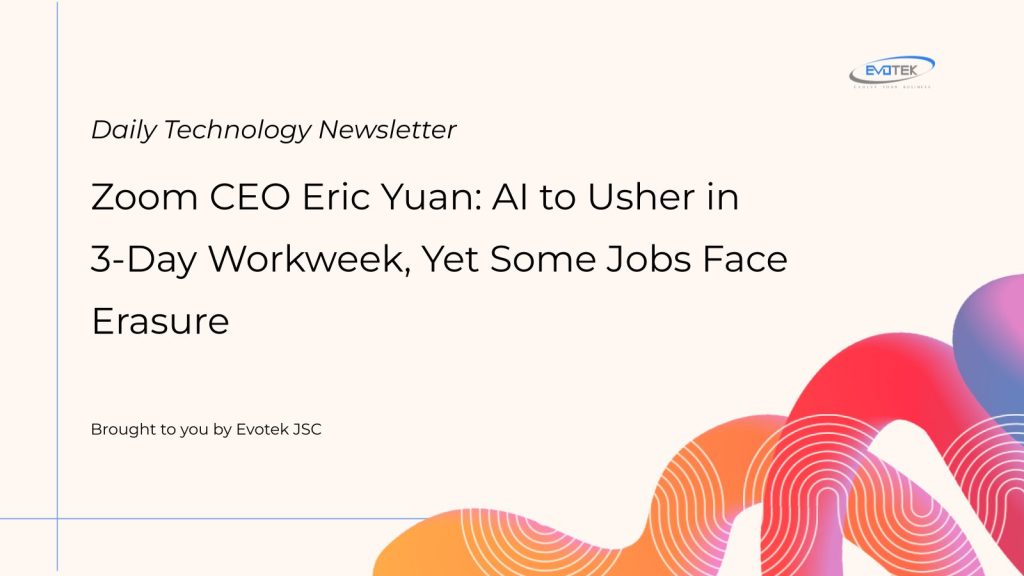The future of work is a central topic in today’s rapidly evolving technological landscape, and artificial intelligence (AI) is at the core of this transformation. According to Zoom CEO Eric Yuan, AI is poised to revolutionize our professional lives, potentially ushering in a three or four-day workweek. This bold prediction aligns with similar sentiments from other prominent figures in the business world, including Bill Gates, Jensen Huang of Nvidia, and JPMorgan Chase CEO Jamie Dimon.
Yuan’s vision, however, comes with a significant caveat: while those who retain their positions may enjoy increased leisure time, AI’s growing capabilities also mean certain human roles will inevitably be displaced. The Zoom leader candidly admits that the technology will “erase some human jobs” as automated assistants and advanced chatbots take over tasks currently performed by people.
The Shifting Landscape of Work in the AI Era
The advent of sophisticated AI technologies has ignited a global debate among business leaders regarding its ultimate impact on the workforce. Opinions diverge sharply:
- Some, like Anthropic CEO Dario Amodei, caution about a potential “white-collar jobs armageddon,” suggesting widespread displacement across professional sectors.
- Conversely, Google DeepMind leader Demis Hassabis presents a more optimistic outlook, foreseeing a “golden era” of abundance where AI enhances human capabilities and creates new opportunities.
Despite these differing viewpoints, a growing consensus is emerging among top executives that shorter workweeks are on the horizon. Eric Yuan joins this cohort, envisioning a future where employees might only need to clock in a few days a week, thanks to increased efficiency and automation driven by AI. The promise of enhanced productivity, reduced operational costs, and a better work-life balance fuels this optimistic projection for the surviving workforce.
Prominent Voices Backing the Shorter Workweek
The idea of a condensed workweek is gaining traction, backed by some of the most influential minds in technology and finance:
- Bill Gates has long spoken about automation’s potential to free up human time.
- Nvidia’s Jensen Huang has similarly suggested that AI will “probably” bring about four-day workweeks, highlighting how every industrial revolution leads to societal changes.
- JPMorgan Chase CEO Jamie Dimon has also hinted at the transformative power of AI, which could fundamentally reshape how we structure our professional lives.
As AI continues its rapid advancement, businesses are grappling with how to integrate these powerful tools effectively. The challenge lies in maximizing the benefits of AI for productivity and innovation while responsibly managing its impact on employment and the overall structure of the global workforce. The conversation is no longer about if AI will change work, but how deeply and how quickly these changes will manifest, including the much-anticipated shift to shorter workweeks for many.

 日本語
日本語 한국어
한국어 Tiếng Việt
Tiếng Việt 简体中文
简体中文